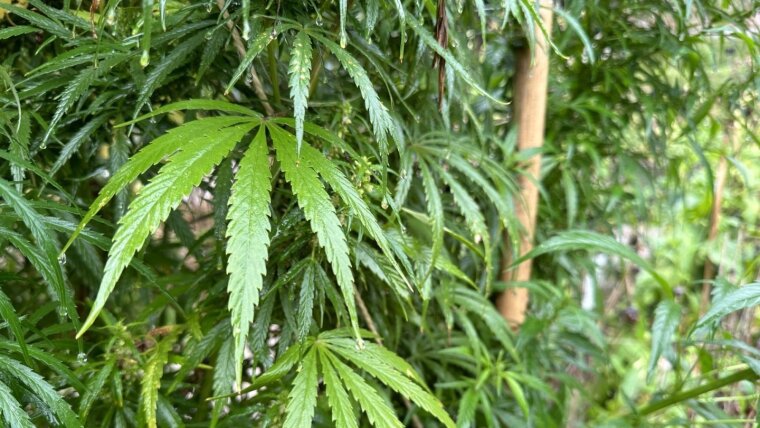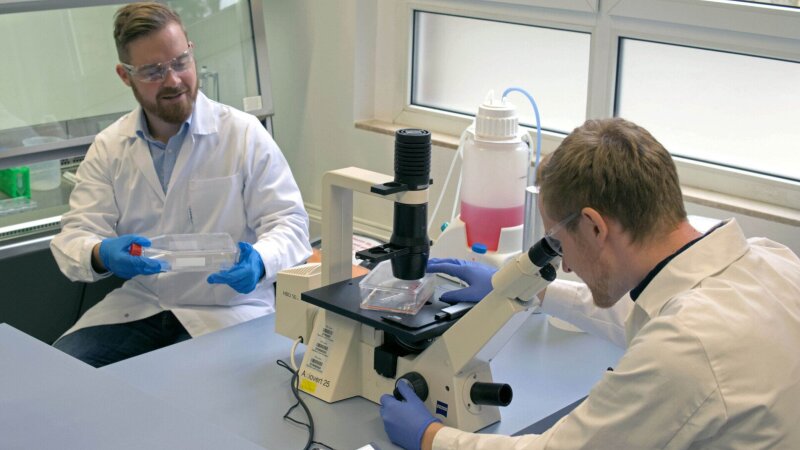
The hemp plant, scientifically Cannabis sativa, is one of the oldest medicinal and agricultural plants known to humankind. Its therapeutic effects, for example against pain and spasms, have been utilized for thousands of years. An international research team led by researchers from Jena has now discovered that the plant has even more healing potential and has shown how cannabinoids work in the case of inflammation.
By Ute Schönfelder
In the summer of 2023, the federal government took the controversial decision to make the aquisition and posession of small amounts of cannabis exempt from punishment. After the Bundestag epproved the cabinet draft, the »Cannabis Act« will come into force on 1 April 2024. While some consider this move to be long overdue, others continue to warn urgently against the health risks of cannabis use.
Researchers from the University of Jena and their colleagues from Italy, Austria, and the USA are taking a different look at cannabis—at the traditional medicinal plant—with a study published in the journal »Cell Chemical Biology«. The team from the Institute of Pharmacy investigated how certain ingredients from the cannabis plant counteract inflammation.
It was already known from previous studies that cannabis is not only an analgesic and an antispasmodic, but also has an anti-inflammatory effect. »However, the reason for the anti-inflammatory effect was largely unclear until now,« says Dr Paul Mike Jordan, who led the study together with Prof. Dr Oliver Werz.
Cannabinoids with anti-inflammatory effect
The researchers studied how different cannabinoids, including the psychoactive THC (tetrahydrocannabinol) and CBD (cannabidiol), which is already found in freely available products today, act on human immune cells. »We found that all eight cannabinoids we studied had anti-inflammatory effects,« says Lukas Peltner, doctoral student and first author of the study. »All the compounds we studied were found to inhibit the formation of pro-inflammatory messenger substances in cells while enhancing the formation of inflammation-resolving substances.«
CBD induces a switch in immune cells
CBD in particular proved to be highly effective and the team investigated it in more detail with regard to its mode of action.
The researchers were able to determine that CBD activates the 15-lipoxygenase-1 enzyme, which triggers the production of inflammation-resolving messenger substances that subsequently cause the inflammation to subside. »CBD thus induces a switch in the affected cells, so to speak, which steers the inflammatory process from the promoting to the inhibiting side,« explains Dr Jordan. The researchers were also able to confirm these results, which were obtained in cell cultures, in animal experiments on mice.
In the long term, the insights gained could lead to new therapeutic strategies for treating inflammatory diseases, the researchers conclude. The focus should be on CBD, which was the most effective cannabinoid in the study. Previously approved preparations with cannabinoids contain CBD, »but also the psychoactive THC, which can be associated with a variety of side effects,« notes Dr Jordan. Therapeutics containing only CBD would reduce this problem.
Dr Paul Mike Jordan (l.) investigates the actions of cannabinoids in humans with Lukas K. Peltner (r.).
Image: Anna KönigOriginal publication:
Cannabidiol acts as molecular switch [...], Cell Chemical Biology (2023), https://doi.org/10.1016/j.chembiol.2023.08.001External link
